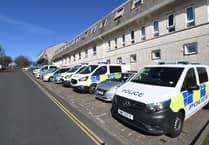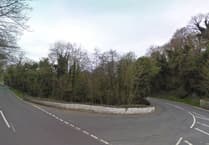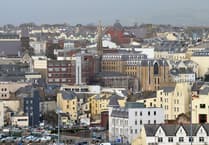The lowest-paid police officers are due to receive an 8% pay rise.
The announcement comes after Chief Constable Gary Roberts earlier this month warned in his final annual report that officers had faced a real terms pay cut of close to 20% over the last decade, and that in particular young officers have ‘little disposable income and few chances of establishing themselves on the housing ladder’.
Student constables currently start on £24,000 per year.
However, in announcing its support for the pay rises, the Department of Home Affairs cautioned that ‘there will inevitably be challenges for already stretched police budgets which will affect other areas of the department’s budget as we try and cover this increase’.
The Chief Constable added that the problem was not limited to younger officers, and that more senior officers, including sergeants, had reported to Mr Roberts that they are struggling with some being left with little or no disposable income, and struggling to afford a social life or afford dental treatment.
Under the new announcement, the salary of senior officers will increase by between 0.6% and 3%.
The latest inflation figure for the Isle of Man, published this week, is 10.8%.
In this year’s Budget the Treasury had allocated an increase of 2% to the force’s existing pay budget, but these increases now represent an increase of six percent.
The approved pay uplift translates to £1,900 per officer.
Mr Roberts had also used his report to warn politicians that while it could be tempting to cut the general policing budget, this would only serve to cut local policing, with the impact being felt most by young and vulnerable people.
Stressing his point about salaries, he stated: ‘Fewer officers, fewer good officers, poor morale and even, in a worst-case scenario, corruption were all unintended consequences the last time police pay fell in real terms, which was in the 1970s.’
The report also laid out how while the ‘financially disciplined’ Isle of Man Constabulary had continued to meet its budgetary targets, it also faced new costs.
These included drug wipes which cost £14 each and off-island testing which costs upwards of £600, factors which contributed to the forensic science budget for 2022-23 being overspent for the first quarter of the year.
Among the wider pressures on police finances were the ‘twin threats’ of ‘poorer government finances because of Covid-19 and high levels of inflation posing a genuine threat to how the constabulary operates’.
The Police Federation says the £1,900 pay award for officers will help in bridging the gap between household incomes and the cost of living crisis.
It said that the move was a ‘small step and long overdue’.
Starting salaries for police officers in the island will be increased by 8%, which follows the same measure being implemented in England and Wales.
The federation says this is ‘disappointing’ for those in supervisory ranks (senior officers) or who are longer in service. Their pay award comes to between 0.6% and 3%.
Since the pay award was announced, the Department of Home Affairs has said it supported it but warned it would create challenges for already ‘overstretched’ budgets.
Richard Hewitt, chair of the Police Federation in the island, told Manx Radio: ‘We want all workers across the public sector to get the pay rise they deserve, but police officers face unique dangers, being asked to put their lives in danger daily to protect our communities, it’s important that this is reflected in an ongoing way.
‘It does bridge the gap a little for those at the middle part of their careers, then that percentage starts to come down. What they’ve done is instead of using a small bucket to empty a sinking ship, they’ve just given them a bigger bucket.
‘We’re now into 10% inflation so we would have hoped for a pay award that would have been in line with inflation. It’s not to say that this pay award is not welcome because it’ll be a respite for officers, especially for those who are much younger in the service.
‘We represent everyone from constables the first day through the door to an officer that’s got 29 years 364 days [in the force] so we’re there to represent them equally.
‘We would have liked a percentage increase across the board rather than a £1,900 lump payment because it’s just a small drop in the ocean for those who are at the other end of the pay scale.’





Comments
This article has no comments yet. Be the first to leave a comment.